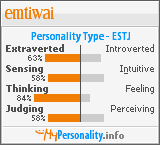Generation Y
Born in the mid-1980's and later, Generation Y legal professionals are in their 20s and are just entering the workforce. With numbers estimated as high as 70 million, Generation Y (also known as the Millennials) is the fastest growing segment of today’s workforce. As law firms compete for available talent, employers cannot ignore the needs, desires and attitudes of this vast generation.
Below are a few common traits that define Generation Y.
Tech-Savvy: Generation Y grew up with technology and rely on it to perform their jobs better. Armed with BlackBerrys, laptops, cellphones and other gadgets, Generation Y is plugged-in 24 hours a day, 7 days a week. This generation prefers to communicate through e-mail and text messaging rather than face-to-face contact and prefers webinars and online technology to traditional lecture-based presentations.
Family-Centric: The fast-track has lost much of its appeal for Generation Y who is willing to trade high pay for fewer billable hours, flexible schedules and a better work/life balance. While older generations may view this attitude as narcissistic or lacking commitment, discipline and drive, Generation Y legal professionals have a different vision of workplace expectations and prioritize family over work.
Achievement-Oriented: Nurtured and pampered by parents who did not want to make the mistakes of the previous generation, Generation Y is confident, ambitious and achievement-oriented. They have high expectations of their employers, seek out new challenges and are not afraid to question authority. Generation Y wants meaningful work and a solid learning curve.
Team-Oriented: As children, Generation Y participated in team sports, play groups and other group activities. They value teamwork and seek the input and affirmation of others. Part of a no-person-left-behind generation, Generation Y is loyal, committed and wants to be included and involved.
Attention-Craving: Generation Y craves attention in the forms of feedback and guidance. They appreciate being kept in the loop and seek frequent praise and reassurance. Generation Y may benefit greatly from mentors who can help guide and develop their young careers.
Generation Z
Generation Z is the latest generation which will be leading the world in a couple of decades from now. Is the generation responsible enough is a big question and are they being prepared in the right way for days to come? The current recession and financial strife has no bearing in shaping the future of the generation Z and they do not feel it either.
There are several traits that are common when it comes to specific generations. The generation Z is the latest generation who were born after 1994 and before 2004. Many of them are in their early teens and differ from the earlier generation in many ways. This particular generation is still in a stage of evolution and they are yet to learn several things in life.
As per research this generation can be an active set of consumers. Being born during the time of consumer market boom they have access to almost all the best things one could get. They have access to almost everything such as communication tools, internet cell phones, MP3 players, Ipods, and all the current gadgets. They are the children of the modern world and are also called the digital generation. They also are growing up in a world of equality and they believe men and women are equals.
Beyond 2020, there could be drastic changes in work culture, ethics and even values that will be set forth by the generation Z. The generation Z is not good listeners and they severely lack interpersonal skills. They use the World Wide Web mostly for communication and keeping touch. So when it comes to work, in future they may barely be seen in an office communicating with their colleagues but might live their life in the virtual world.
They are less oriented than the generation Y but have strong opinions and do not take suggestions well. Psychologists are noticing a drastic behavior change from generation Y to Generation Z. For the generation Y, the emphasis has always been career and studies whereas the generation Z does not believe in career and formal studies either. Their personal lives can lack communication and this lack of communication may not be very effective for bringing up future generations by them. Also by the time the Generation Z starts working there might be severe shortage of professionals like doctors and scientists. Also, such professions may not hold any value for the generation Z.






